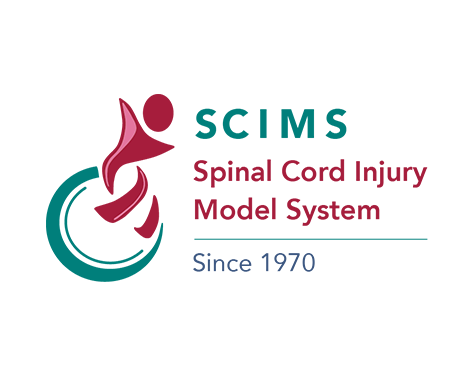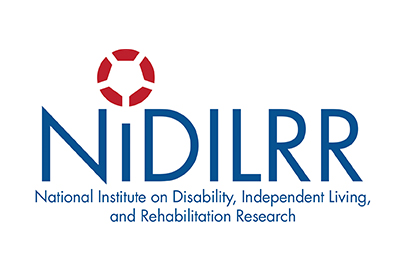Spinal Cord Injury Model System (SCIMS)
Baylor Scott & White Spinal Cord Injury Model System
The Baylor Scott & White Spinal Cord Injury Model System (BSW-SCIMS) is a nationally recognized program that supports innovative clinical care and research to evaluate medical, rehabilitation, vocational and other services to meet the needs of individuals with SCI. Baylor Scott & White Institute for Rehabilitation - Dallas is one of 18 centers nationwide that was awarded a competitive grant by the National Institute of Disability, Independent Living, and Rehabilitation Research (NIDILRR), due to its recognition as a national leader in SCI research and patient care.
Purpose of the SCI Model System:
- Deliver coordinated rehabilitation care to patients with SCI
- Track the health of patients over their life-time to better understand and support their recovery
- Conduct innovative research to improve patient outcomes
- Participate in collaborative, multi-site research with other SCI Model System centers across the country
- Provide resources to patients and families
Helpful Links
- Living with Spinal Cord Injury (SCI) | Model Systems Knowledge Translation Center (MSKTC)
- Quick Review of Research | Model Systems Knowledge Translation Center (MSKTC)
- Publications | Model Systems Knowledge Translation Center (MSKTC)
- About the National Institute on Disability, Independent Living, and Rehabilitation Research (NIDILRR) | ACL Administration for Community Living
- Spinal Cord Injury Rehabilitation
Local Project
Prevention of Posttraumatic Stress: A Randomized Controlled Trial of Modified Brief Prolonged Exposure Therapy (Brief PE) During Inpatient Rehabilitation Post SCI
Investigators
Mark Powers, PhD (PI); Ann Marie Warren, PhD (co-PI); Seema Sikka, MD (Co-I)
Importance: Although the physical outcomes associated with SCI have been widely studied, the psychological consequences of sustaining a SCI remain less explored. Prolonged exposure therapy (PE) is a well-researched and highly effective treatment for PTSD across multiple traumas. However, early intervention with Brief PE for PTSD prevention among people post SCI in a rehabilitation setting has not yet been tested. We aim to conduct the first test of the Brief PE intervention to prevent PTSD among patients with SCI.
Goal: We will conduct a RCT to examine the efficacy of the modified Brief PE intervention delivered in an inpatient rehabilitation setting post-SCI to reduce PTSD symptoms (primary outcome) at one, three, and six months from baseline; (2) Examine the efficacy of the modified brief PE intervention on secondary outcomes including depression, general anxiety, pain, and quality of life at one, three, and six months from baseline; and (3) Assess the feasibility and fidelity of delivering the Brief PE intervention to people with SCI.
SCIMS Module Collaborative Projects 2021-2026
- Development and Assessment of SCIMS cUTI Consensus Guidelines (Phase 3); Lead: National Capital Spinal Cord Injury Model System (NC-SCIMS-MedStar NRH)
- Equity and Quality in Assistive Technology (EQUATE); Lead: University of Pittsburgh Model Center for Spinal Cord Injury (University of Pittsburgh)
- Who Benefits? Understanding the Formal and Informal Financial Assistance Used to Cope with the Economic Impact of Spinal Cord Injury; Lead: Kessler Institute for Rehabilitation
- An SCI stakeholder-vetted education module to mitigate early cardio-endocrine health risks occurring after spinal cord injuries; Lead: South Florida Spinal Cord Injury Model System (Univ. of Miami)
- Accelerating Racial and Ethnic Equity in SCI Rehabilitation Outcomes; Lead: Virginia Consortium for Spinal Cord Injury Care (VCU)
- Evaluating the Utility of Spasticity and Brain-Derived Neurotrophic Factor (BDNF) in Predicting Neurologic and Functioning Recovery after SCI; Lead: Midwest Regional Spinal Cord Injury Care System (Shirley Ryan AbilityLab)
- Acute Spinal Cord Injury Outcomes Associated to Early Opioid Administration; Lead: TIRR Memorial Hermann
Baylor Scott & White Spinal Cord Injury Model System Investigators
- Ann Marie Warren, PhD, ABPP | Project Director
- Rita Hamilton, DO | Co-Project Director
- Mark Powers, PhD | Co-Investigator
- Seema Sikka, MD | Co-Investigator
- Chad Swank, PT, PhD | Co-Investigator
- Simon Driver, PhD | Co-Investigator
- Monica Bennett, PhD | Biostatistician
- Librada Callender, MPH, CCRC | Project Manager
- Megan Douglas, PhD | Interventionist
- Chista Ochoa, MPH | Research Coordinator
- Erina Sarker, MPH | Research Coordinator
- Jacqueline Nguyen, MPH | Research Coordinator

